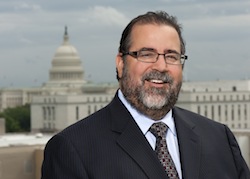The Brazilian Sugarcane Industry Association (UNICA) today announced the appointment of an interim CEO to replace Marcos Jank, who announced his resignation on March 27th.
 UNICA’s Board of Directors has named the organization’s Technical Director, Antonio de Padua Rodrigues, to serve as interim CEO during the selection process, now underway, for a new chief executive.
UNICA’s Board of Directors has named the organization’s Technical Director, Antonio de Padua Rodrigues, to serve as interim CEO during the selection process, now underway, for a new chief executive.
A member of the executive team at UNICA since 1990, Rodrigues has been in the sugar-energy industry for more than 30 years and is the organization’s Technical Director since 2003. He is a former Administrative and Financial Coordinator of the Brazilian government’s National Program for the Improvement of Sugarcane, known as Planalsucar, and was also Administrative and Financial Supervisor for projects backed by Industry and Technology Secretariat at the Federal Industry, Trade and Technology Ministry. In 1983, he played a leading role in the introduction of SPCTS, the Sugarcane Payment System by Saccarosis Content, where he remained as a Consultant until 1990.
 Marcos Jank became Board Chairman and CEO at UNICA in July of 2007 and has since spearheaded a period of significant achievements for the sugar-energy industry.
Marcos Jank became Board Chairman and CEO at UNICA in July of 2007 and has since spearheaded a period of significant achievements for the sugar-energy industry.
Accomplishments include a much more intense dialogue with all levels of government; progress in various areas relating to labor, the environment, social concerns and the regulatory framework; and the establishment of a strong international presence with offices launched in Washington, D.C. and Brussels. These were crucial steps for the non-renewal at the end of 2011 of the steep tariff imposed by the United States on imported ethanol.
“It has been a great honor to serve an industry that is so important to national life and is increasingly vital for the planet, given the growing range of low carbon solutions that sugarcane offers; the sector has a very promising future and I’m sure that the work done so far will provide a solid base for the progress that we will witness in the future,” said Jank, who brought forward his departure from UNICA because of national and international commitments linked to future activities in his professional life.


 Florida Agriculture Commissioner Adam Putnam is pleased with the new energy bill for the state that was allowed to become law last week when Governor Rick Scott declined to either sign or veto it.
Florida Agriculture Commissioner Adam Putnam is pleased with the new energy bill for the state that was allowed to become law last week when Governor Rick Scott declined to either sign or veto it. From a
From a 
 The ethanol industry reports that a total of 99 ethanol producers are funding the survey to meet the requirement under the partial waiver approved by EPA.
The ethanol industry reports that a total of 99 ethanol producers are funding the survey to meet the requirement under the partial waiver approved by EPA.  A coalition of trade groups and organizations representing renewable energy, energy efficiency, farm and environmental interests is disappointed in a 2012 Farm Bill draft out of the Senate Agriculture Committee that they say provides “no real funding for energy programs.”
A coalition of trade groups and organizations representing renewable energy, energy efficiency, farm and environmental interests is disappointed in a 2012 Farm Bill draft out of the Senate Agriculture Committee that they say provides “no real funding for energy programs.” Coalition member Brent Erickson of the
Coalition member Brent Erickson of the 


